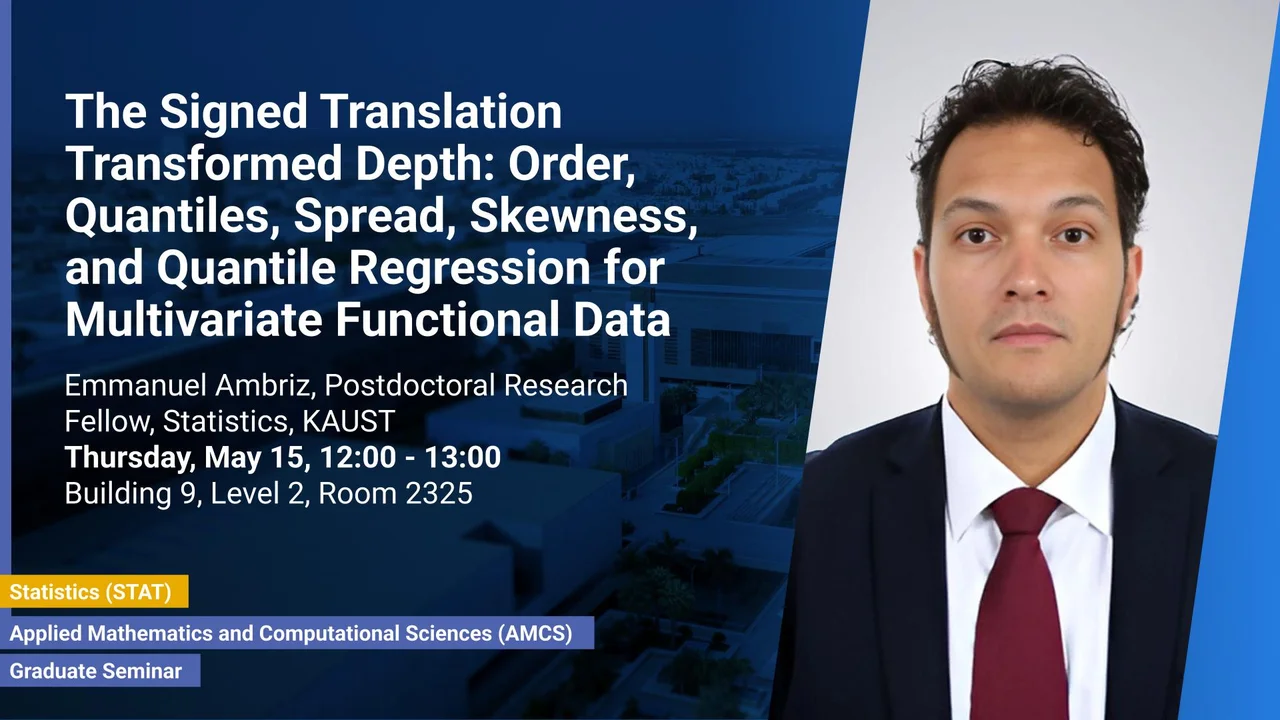
The Signed Translation Transformed Depth: Order, Quantiles, Spread, Skewness, and Quantile Regression for Multivariate Functional Data
This seminar introduces the Signed Translation transformed Depth (STtD), a novel interpretable ordering method for multivariate functional data, which enables enhanced distributional analysis, the definition of descriptive tools, and a flexible vine copula-based quantile regression framework.
Overview
Multivariate functional data play a central role in modern research across fields such as neuroscience, medicine, and environmental science. Key challenges in analyzing such data include extracting distributional characteristics, performing supervised and unsupervised learning, and building nonlinear functional regression models. Central to addressing these challenges is defining a suitable notion of order that captures the distributional properties of functional data. While functional depth has been widely used, its interpretation lacks symmetry with respect to the deepest curve, which limits its effectiveness in representing distributional aspects. To address this, we introduce the Signed Translation transformed Depth (STtD), a novel and interpretable notion of order for multivariate functional data. With this new notion in place, we define functional quantiles and descriptive tools such as probability bands, interquartile range, spread, and skewness for functional data analysis. Furthermore, building on STtD, we propose a flexible framework for multivariate functional quantile regression using vine copulas, allowing interaction between scalar and functional predictors. This research primarily advances the understanding of distributional analysis and nonlinear regression for functional data while offering tools that are both interpretable and adaptable to complex structures in high-dimensional settings.
Presenters
Brief Biography
Dr. Emmanuel Ambriz is a Ph.D. in Statistics whose research has focused on frontier challenges in copula theory, particularly in multivariate vine copula models, and their relevance to other branches of modern statistics.
Dr. Ambriz has recently joined the CEMSE Division as a postdoctoral fellow. He obtained his M.S. and Ph.D. degrees from the Centro de Investigación en Matemáticas (CIMAT), Mexico, in 2016 and 2024, respectively. From 2017 to 2022, he has worked as a Professor and Researcher at the Universidad Regional Amazónica Ikiam in Ecuador, where he has been involved in several research projects related to conservation and water resource challenges in the Ecuadorian Amazon.
In addition to his research career, Dr. Ambriz has actively collaborated as a statistical consultant with various industries, public institutions, and NGOs in Mexico and Ecuador, applying statistical methods to support data-driven decision-making across diverse sectors.

